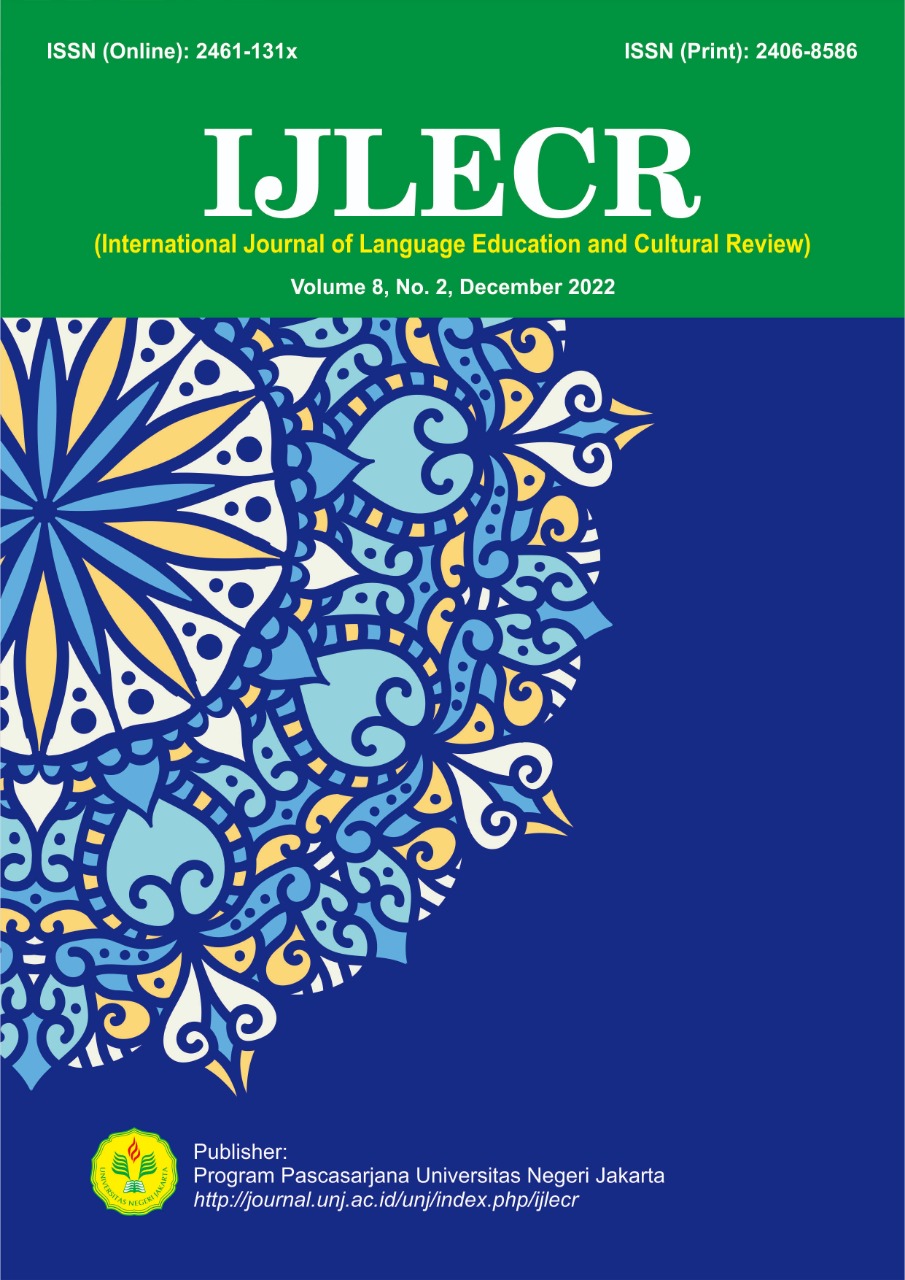Exploring English Skill Problems of Engineering Students for Evaluating Their Needs
DOI:
https://doi.org/10.21009/ijlecr.v8i2.32418Keywords:
English, engineering students, need analysis, problemsAbstract
Despite the existence of many studies on English skills in the classroom context, little scholarly work reports English skill problems for engineering students. To fill this gap, this current study explores English skill problems of engineering students for evaluating their needs. This study was conducted at a national institute of technology in India. The data were collected through administering questionnaires. The study indicates that the engineering students feel the most difficulty in making presentations individually (speaking). They also have difficulty in listening, especially in understanding lectures. Further, the obstacle in writing reveals that the engineering students more frequently encountered difficulty in transferring information from visual to verbal and using correct punctuation during the writing activity. It is surprising in reading skill that the students do not encounter a big problem in reading. Moreover, they state that reading is very important to success in their courses of study. The findings suggest that although reading is keeping to be taught extensively, the lecturer should foster students more in listening, speaking, and writing skills in the teaching learning process.
References
Aklilu, G. (2015). An investigation of the present situation communicative needs in an ESP context: Civil engineering students in focus. English for Specific Purpose World 48(16) 1-19.
Al-Manshour, N.S.&Al-shorman, R.A. (2014) The Effect of an Extensive Reading Program on the Writing Performance of Saudi EFL University Students. International Journal of Linguistics, 6 (2), 258-275.
Alqunayeer, H. S., & Zamir, S. (2016). Needs Analysis of Saudi EFL Female Students: A Case Study of Qassim University. Journal of Curriculum and Teaching, 5(1), 87-104.
Andas, N. H. (2020). Students’ Speaking Problem at the Fourth Semester of English Study Program in Sembilanbelas November Kolaka. ELT Worldwide: Journal of English Language Teaching, 7(1), 1-9.
Asworo, C. W. (2019). The Analysis of Students' Difficulties In Speaking English at the Tenth Grade of SMK N 2 Purworejo. Journal of English Education and Teaching, 3(4), 533-538.
Bae, D. (2017). Designing an English Syllabus for Nursing Students based on need analysis in Indonesia. ELT Worldwide: Journal of English Language Teaching, 4(1), 61-74.
Boroujeni, S. A., & Fard, F. M. (2013). A needs analysis of English for specific purposes (ESP) course for adoption of communicative language teaching: (A case of Iranian first-year students of educational administration). Life, 1, 35-44.
Hadfield, J. & Hadfield, C. (2012). Introducing to teaching English. Oxford University Press.
Hasan, A. S. (2000). Learners' perceptions of listening comprehension problems. Language Culture and Curriculum, 13(2), 137-153.
Inayah, R., & Lisdawati, I. (2017). Exploring Students' Difficulties in Speaking English and Their Attitude In Speaking English. Acuity: Journal of English Language Pedagogy, Literature and Culture, 2(1), 12-23.
Mukminin, A., Sutarno, Arif, N., Noprival, & Maimunah (2015). EFL Speaking Anxiety among Senior High School Students and Policy Recommendations. Journal of Education and Learning. 9 (3), 217-225.
Noprival, N. (2017). Students’voice: EFL speaking problems on English day program at one senior high school in Indonesia. Jurnal Ilmiah Universitas Batanghari Jambi, 16(1), 77-81.
Nurie, Y. (2017). Analyzing the English language needs of university law students. The Internet Journal Language, Culture, and Society, 43, 47-56.
Richards, J. C. (2001). Curriculum development in language teaching. Cambridge University Press.
Richards, J. C. (2013). Curriculum approaches in language teaching: Forward, central, and backward design. Relc Journal, 44(1), 5-33.
Solikhah, I. (2016). Pengembangan model kurikulum pendidikan bahasa Inggris berbasis KKNI. Konstruktivisme, 8(1), 20-36.
Songbatumis, A. M. (2017). Challenges in teaching English faced by English teachers at MTsN Taliwang, Indonesia. Journal of foreign language teaching and learning, 2(2), 54-67.
Tinjaca, R.A.B. & Contreras,R.A. (2008) Overcoming Fear of Speaking in English through Meaningful Activities: A Study with Teenagers. Profile, 9(1), 23-46.
Tsai, Y. R., Ouyang, C. S., & Chang, Y. (2016). Identifying engineering students’ English sentence reading comprehension Errors: applying a data mining technique. Journal of Educational Computing Research, 54(1), 62-84.
Wahyuningsih, S., & Afandi, M. (2020). Investigating English Speaking Problems: Implications for Speaking Curriculum Development in Indonesia. European Journal of Educational Research, 9(3), 967-977.
Yaumi, M. (2012). Pengembangan bahan ajar English for specific purpose berbasis TIK. Lentera Pendidikan, 15(2), 144–160. https://doi.org/10.24252/lp.2012v15n2a2








